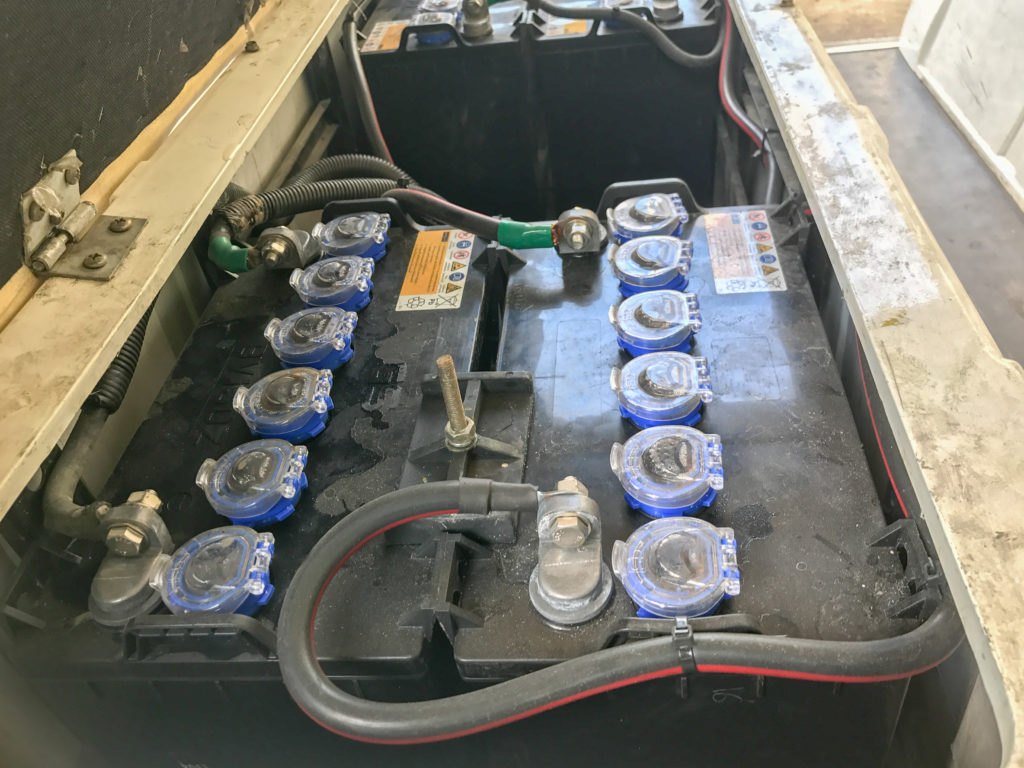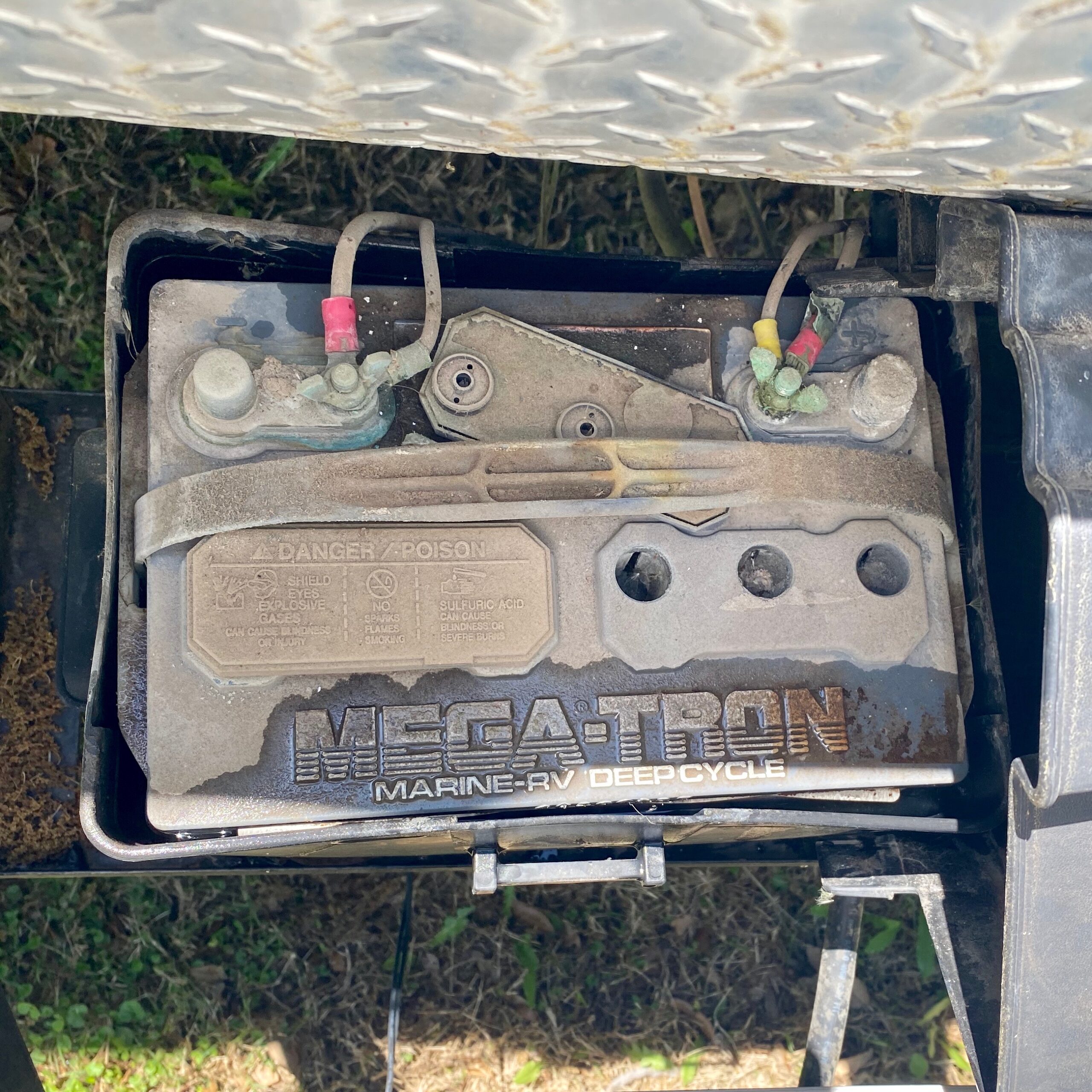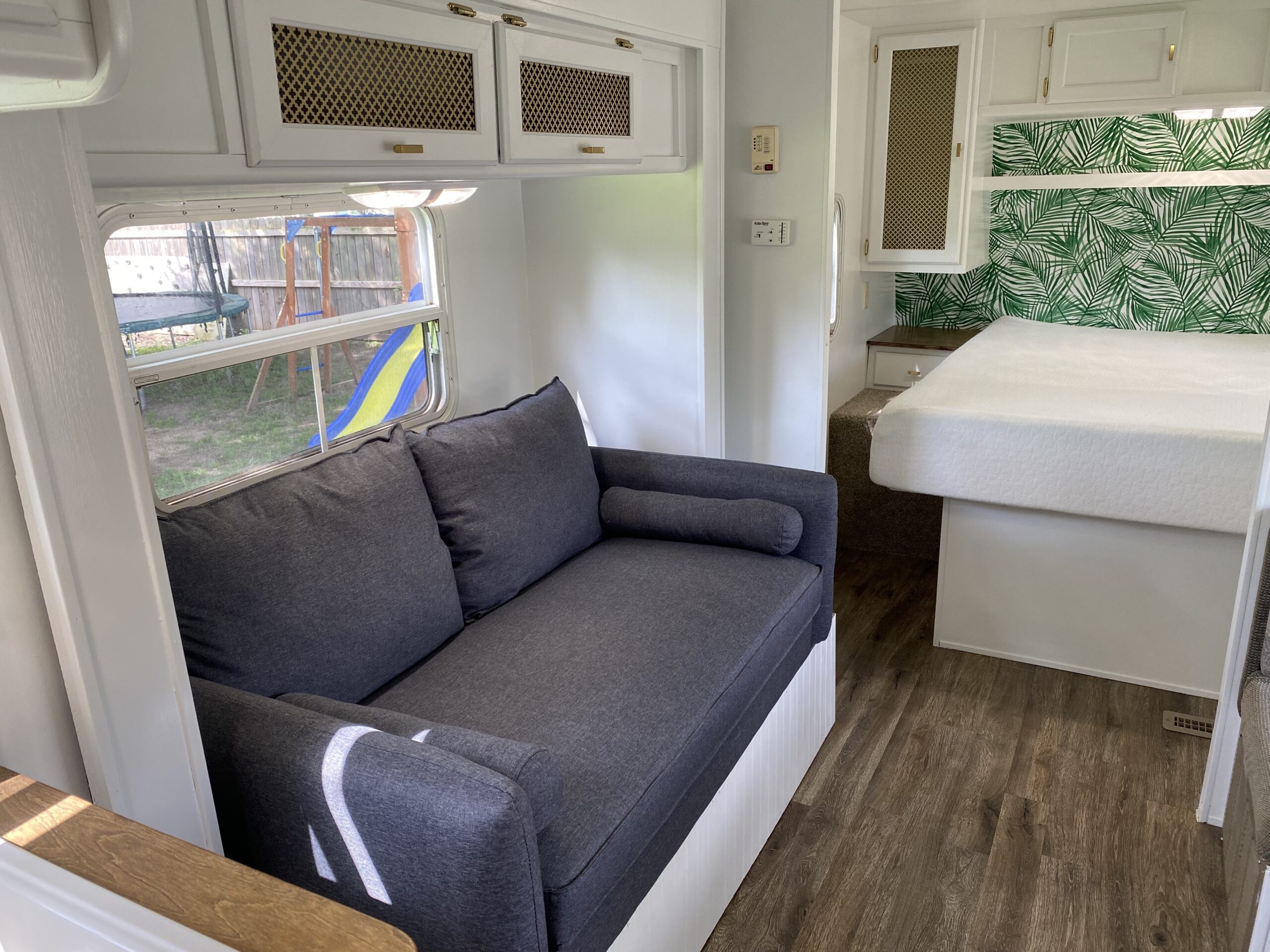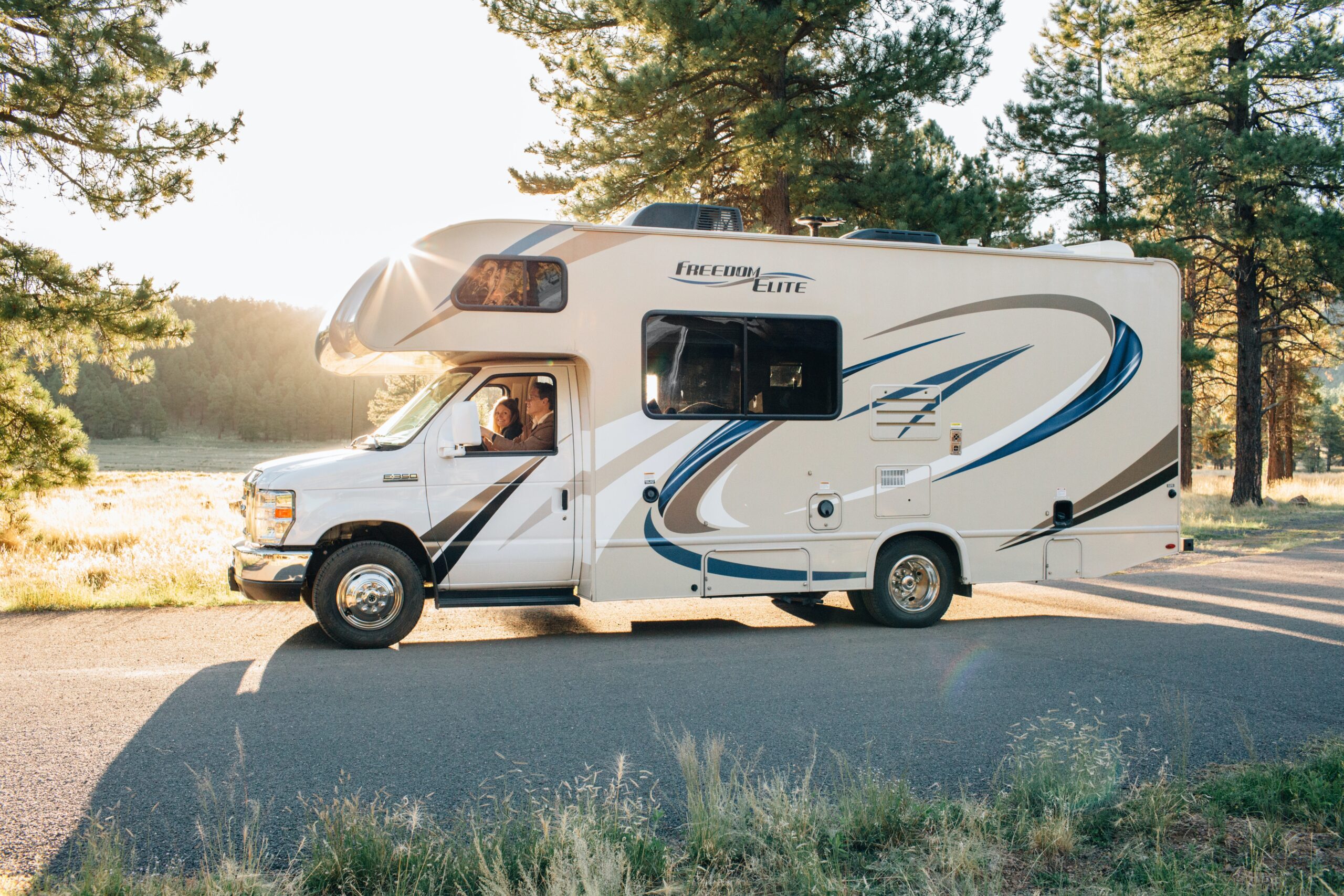Even the answer to the question of whether you should use 6v or 12v batteries can change over a few short years.
But which is the best as things stand right now?
Which between 6v and 12v works better will depend on what you plan on doing with your RV. For RVers who like to go into the wilderness, two 6v batteries in series can give you more amp hours of power than 12v while also weighing less. 6vs, however, are generally much more expensive.
It can often be very difficult to disentangle all the information out there about RV batteries.
In this article, we’ll be going into detail into the pros and cons of 6v and 12v batteries to find out which is best for you, given your RV setup and needs.
Parallel vs. Series
Before we get into any particulars about RV batteries, it is very important to know the difference between connecting batteries in series and connecting them in parallel.
Without connecting them in series, it is actually impossible to use 6v in an RV! That is because 12v is the minimum power requirement for an RV.
6v batteries must, therefore, be connected in parallel in order to double the voltage. We will get more into that shortly.
Connecting two batteries in parallel means that you will get the same voltage as the individual batteries, but you will double the amp hours.
For example, if you connect two 12v batteries with 500 amp-hours (Ah) each in parallel, you will end up with 1,000 Ah of 12v power.
If you connect two 6v batteries with 1,200 amp-hours each, you will end up with 2,400 amp hours of 6v power. That is not high enough voltage to power an RV.
If you connect two 6v batteries with 1,200 Ah each in series, you will end up with 1,200 Ah of 12v power.
In other words, by connecting in series, you double the voltage while keeping the Ah the same.
Connecting in parallel does the opposite, doubling the Ah while keeping the voltage the same.
Most RVs are set up with two 12v batteries connected in parallel, giving the right voltage but doubling the Ah capacity of a standard 12v.
What Does Deep Cycle Mean?

In essence, the difference between a normal ‘starter’ battery and a deep cycle battery is that the starter battery is designed to provide a large amount of energy for a short time.
In contrast, the deep cycle is designed to provide a low amount of energy over a long period.
In other words, starter batteries are designed to start the RV, but deep cycle batteries are designed to run the microwave and lights over an extended period.
The deep cycle batteries in your RV will also be referred to as the ‘home’ batteries since they power the appliances, which make your RV act like a home.
Deep cycle batteries have thicker plates surrounding the battery cells, which allow them to be discharged more fully (a deeper cycle).
This is also one reason why deep cycle batteries are used for off-grid renewable energy storage.
6v batteries are more likely to be ‘true deep cycle’ rather than hybrids.
An important difference in this area is the difference between Cold Cranking Amps (CCA) and Reserve Capacity (RC).
CCA refers to the number of amps the battery can produce in a short burst of about 30 seconds.
On the other hand, RC refers to how many minutes the battery can provide 25 amps while keeping the voltage above 10.5v.
The CCA, then, is what you need to look for in a starter battery, but the RC is important for a home battery.
Weight
How heavy your batteries are will have a small effect on the fuel efficiency of your vehicle.
It makes sense, then, to choose the lightest battery which can give you the power and Ah capacity you need.
Another consideration, however, is the weight of the individual batteries since this will have an effect on how easy it is to move and arrange the batteries.
Note: Some types of batteries naturally weigh more than others due to the material that they’re made out of as well as the liquid inside. For example, flooded lead-acid batteries can weigh up to three times the amount of lithium-ion batteries.
Two 6v batteries will likely have a higher combined weight than one 12v battery, although each individual 6v battery will usually be lighter and easier to maneuver.
The weight of a battery will also depend on the amp-hour capacity.
A 12v with a high Ah capacity may well be heavier than two 6v batteries in series, but it will likely also have a higher Ah capacity at the same voltage.
Longevity
Two 6v batteries are usually heavier than one 12v because the 6vs have thicker cell walls and more protection.
However, that is also the reason two 6v batteries will likely last a lot longer than one 12v.
That is an important consideration, particularly if you plan on taking long trips out in the wilderness.
The last thing you want is for a battery to give up while you are on the road.
That said, if you buy a high-quality 12v battery and do the appropriate maintenance, it can last just as long as its 6v cousins.
A good tip to keep your batteries alive longer is never to let them discharge below 50% since this causes the battery to degrade.
It is also a good idea to reduce vampire power. That means unplugging things like TVs and Microwaves instead of letting them go into standby mode.
That little red light indicates your appliance is still using energy!
6v vs. 12v Pros and Cons
Okay, now that we have gone over some general points that you need to know about RV batteries, let’s take a look at each setup’s specific pros and cons.
Pros of 6v RV Batteries
- Higher Ah capacity – Two 6v batteries hooked up in series will usually be able to hold more charge than a single 12v, despite having the same voltage
- Less prone to charge memory – That means you can discharge and recharge them more often without damaging the battery capacity
- Last longer – As discussed, 6vs have thicker plating surrounding the cells, which means they are more durable and will last longer
Cons of 6v RV Batteries
- Expensive – 6v batteries are almost always the more expensive option. The exception is true deep cycle 12vs, which we will discuss later
- Hard to find – This is getting less true every day, but for the minute it is still much easier to find 12v batteries, especially in smaller shops
- May not fit – Most RV battery storage areas are designed for 12vs, which are a different shape to 6vs. 2 6vs just might not fit in your storage area
Pros of 12v RV Batteries
- Cheap – A single 12v battery will almost always be less expensive than two 6vs. Given the small differences between the two options, this might make all the difference.
- You only need one battery – With a 6v setup, you will need to run two batteries in series in order to get the required voltage. No such problems with the traditional 12vs
- Available – You can find the traditional 12v RV batteries in most places that sell batteries, including smaller shops that might not carry 6vs
- They’re space-savers – 12V batteries are only a little bit bigger than their 6V counterparts. You won’t need as much room to get a proper setup.
Cons of 12v RV Batteries
- Less durable – because the plating on 12v batteries is thinner, they will not last as long as the newer 6v option
- Less capacity – One 12v battery will usually carry less Ah capacity than two 6v batteries hooked up in series, although you can get larger 12vs with greater capacity.
- Some higher Ah capacity 12v batteries will be too large to fit in the battery storage area of your RV
Types of RV Battery
Whether you should get a 12v or a 6v battery is not the only question you need to ask yourself before making the purchase.
You also need to consider the type of battery you need. In this section, we’ll look at the different options in detail to find out the pros and cons of each.
Flooded Lead Acid
This battery design has been around since 1859 and hasn’t changed much since.
Why fix what ain’t broke? Because of their long history, lead-acid batteries are still the cheapest on the market today.
They have proven themselves over the years to be effective, reliable, and safe. Here are some pros and cons of lead-acid batteries:
Pros
- Cheap – Due to their long history, lead-acid batteries have become very cheap to produce, and that makes them the least expensive type on the market
- Reliable – Again, this is down to their long history. The reliability of lead-acid batteries has been improved more over the years.
- Widely available – you can get a new lead-acid battery or have your old one repaired basically anywhere that stocks batteries!
Cons
- Weight – it is generally quite heavy, which can be a pretty serious downside considering weight has an effect on fuel economy.
- Maintenance – it’s batteries have to be refilled with water every few months, which acts as the battery’s electrolyte.
- Short-lived – Flooded lead-acid batteries will not last nearly as long as some of their competitors and are prone to overheating.
AGM Lead Acid
AGM stands for ‘absorbent glass mat,’ which is because the sulfuric acid is absorbed by a fine sheet of fiberglass.
This gives AGMs the advantage over flooded lead-acid batteries because you do not have spills and can rotate the battery.
Here are some of the pros and cons of using an AGM lead-acid battery:
Pros
- Unspillable – As mentioned above, you can rotate AGM batteries in any direction you want without spilling the electrolyte.
- Maintenance-free – The water does not need to be replaced in this form of lead-acid battery, making it essentially maintenance-free
- No need for ventilation – Other lead-acid batteries give off hydrogen gas, which means you need ventilation if charging inside. This is not the case with AGMs.
Cons
- More expensive – AGMs are generally significantly more expensive than other forms of lead-acid battery
- The capacity of AGMs reduces gradually over time. However, they will remain highly functional for a long time before this becomes a problem.
- Low specific energy output – This essentially means that the batteries aren’t optimized for running multiple appliances over long periods.
Lithium Iron Phosphate (Lithium Ion)
Lithium-ion is one of the newer types of batteries that can be used in an RV. The most common type used in RVs is lithium iron phosphate, normally written as LiFePO4.
These are the same batteries you will find in your smartphone. There are significant advantages to using lithium batteries in your RV, although, as we will see, this comes at a cost.
Here are some of the pros and cons of using a lithium-ion battery.
Pros
- Deeper cycle – You can drain a lithium battery much more than you can a lead-acid, which can only be drained to about 50%. For lithium, you can go down to a 20% charge! That means you are getting an extra 30% of battery usage for the same weight.
- Longer lifespan – You can discharge these batteries for more cycles, which means they will last a lot longer than lead-acid batteries
- Faster charge rate – LiFePO4 batteries can be charged incredibly quickly when compared to traditional lead-acid batteries.
Cons
- Cost – This is the major drawback of lithium batteries. Because they are relatively new and difficult to manufacture, they are far more expensive than their competitors.
- Aging – Lithium-ion batteries degrade over time, giving you less and less charge. This, however, is quickly improving with each new development
- Hard to find – There are far more vendors stocking the other types of battery listed here than lithium. Again, however, this is set to change pretty quickly.
The Best 6v and 12v RV Batteries
Okay, now that we have looked at the general characteristics of 6v and 12v batteries, let’s look at the best make and model of each type of battery. We don’t have much space, but here is one great example of each type of battery.
VMAXTANKS 6 Volt 225Ah AGM Battery
No products found.
This 6v AGM battery is near the top of every list of the best 6vs for RVing. That is because these are both reliable and high-capacity batteries.
Not too expensive either for a 6v, coming less than $300 per battery. Remember, however, that you will need to buy two and hook them up in series to use them in an RV setting.
These are AGM lead-acid batteries, which means you do not have to worry about checking the water levels, and they can’t spill even if you turn them upside down.
At 72 pounds each, these are unusually heavy 6v batteries. The sacrifice is worth it, however, for their incredible lifespan of up to 12 years!
These batteries are also absolutely ideal for hooking up to solar panels, which are becoming more and more popular in the world of RVs.
Weize 12V 100AH Deep Cycle AGM
No products found.
Another AGM lead-acid battery, the Weize, is an excellent choice for a traditional 12v setup. This battery will give you 100 Ah of 12v power while weighing only 60 pounds.
It is also pretty cheap compared to others of the same quality. This is also an AGM battery, which means no need to worry about spillage or maintenance. That is a big plus as far as I am concerned.
This battery is a classic from a trusted brand and comes with a one-year warranty.
Customer reviews also say that the battery arrives in very secure packaging, which is another big plus considering that batteries can be damaged quite easily by big bumps!
For around $180, this battery gives you unbelievable value for money. It also has an anti-overheat cover, which extends the battery life considerably!
Summary
There is no massive difference between 6v and 12v batteries for an RV when it comes down to it. Both will do broadly the same job, with small differences in amp hours and weight.
One significant advantage of using two 6v batteries is that you will be able to pick them up and move them around. A massive capacity 12v might be too heavy for that!
That being said, when you add the weight of the two 6v batteries that you will need, it will come out at around the same weight as one large 12v.
This, however, will also depend on the amp-hour capacity, make, and model. Generally, more expensive batteries will be more efficient for their size.
This is especially true for lithium batteries, which are extremely efficient but extremely expensive.
Good luck finding the right battery for your RV!






